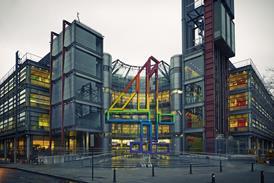Metropolitan France, known as “L’Hexagone” is an ideally situated, diverse and prosperous export market for British companies.

France export overview
Metropolitan France, known as “L’Hexagone” is an ideally situated, diverse and prosperous export market for British companies. It can also be a stepping stone into other eurozone markets.
Contact a UKTI France export adviser for a free consultation if you’re interested in exporting to France.
France is the world’s fifth largest economy. It has the second largest consumer market in Europe with 65 million inhabitants. France is a geographical hub for business within the European Union (EU), but also with Africa and the Middle East.
France is a diversified economy, where services generate 80% of Gross Domestic Product (GDP). The economy also builds on world class industrial sectors. This includes Europe’s:
- largest aerospace and nuclear industries
- second largest agri-food and chemical industries
- third largest Information and Communications Technology (ICT) and pharmaceutical sectors
Paris is the eurozone’s leading financial centre. It is the second most popular location in Europe for foreign financial firms with a total of 500 banks and financial institutions.
Benefits for UK businesses exporting to France include:
- proximity to the UK
- easy transport links from the UK with Eurostar and low cost flights to Paris and many provincial cities
- large, open and diversified market
- similar demographics and status to the UK
- only 1 hour time difference
Strengths of the French market include:
- its strategic location between northern and southern Europe
- excellent internal transport network with motorways and high speed trains
- strong political, commercial and transport links with Germany and other EU and Mediterranean countries
- home to headquarters of many major corporations including Airbus, EADS, Safran, Thales, Dassault, Carrefour, Danone, Total, Areva, EDF, Orange, Renault, Peugeot and Alstom
- home to large number of international trade fairs including SIAL, Maison et Objet,Paris Motor Show and Paris Air Show
- most popular tourist destination in the world with about 80 million visitors in 2012 generating around € 77 billion
Read the EU’s practical guide to doing business in Europe.
Challenges
In many ways France is a similar market to the UK. If your product or service is successful in the UK, there’s a good chance you’ll be successful in France.
However, French businesses can be wary of buying outside France. UK companies need to be reassuring about quality, price and reliability.
There can be resistance, besides language and cultural challenges, when doing business with France. This can be overcome through persistence and regular meetings.
Payment conditions have to be factored into prices. For business to business transactions these can range from immediate payments on receipt of goods (often with a negotiated small discount) to a negotiated 60 day payment.
Standard payments terms with public authorities in Europe are now 30 days maximum.
Growth potential
Economic growth
The Organisation for Economic Co-operation and Development (OECD) predicts that the French economy will grow steadily in 2015 to reach 1.7% growth in 2016.
Domestic austerity measures have eased slightly. However, France has until 2017 to bring its deficit below 3% of GDP. This new non-negotiable 2 year grace period was granted by the European Commission.
The French economy has:
- a 10 to 11% unemployment rate
- had a small increase in levels of household consumption so far in 2015
- exports hampered by the high value of the euro
Creative industries
There are opportunities in France are for strong, innovative, and information economy based UK companies.
There are opportunities around technologies for multimedia organisations involved in:
- advertising
- film
- music
- television (TV)
- broadcasting
- electronic publishing
- video and computer games
Opportunities include:
- online trading
- digital services and global digital content
The design and crafts sector is also an area of considerable opportunity in France.
Contact sophie.debodisco@fco.gov.uk for more information on opportunities in the creative industries sector.
Opportunities for UK businesses in France
Start-up considerations
Typical routes to market options include:
- direct export sales which are subject to British exporter’s general terms
- direct sales using local representation
- sales through a local branch in France via either the establishment of a permanent branch or a French subsidiary company (SARL, SA, SAS)
All options carry advantages and pitfalls.
Conditions of sale for direct exports should be written and signed after negotiations.
Direct sales through local representation involves collaboration with a:
- French locally employed representative
- local representative office
- French commercial agent
- distributor who buys to resell with a margin or a sales representative known as a Voyageur Représentant Placier (VRP)
If you set up a French subsidiary company you need to register with the local Chamber of Commerce.
You should use a credit management agency to provide a credit report before trading with a new company. This will provide an indication of a company’s payment habits and financial situation before you deal with them. French companies are listed on theInfogreffe website, along with address and recent financial statements.
Consult local English speaking lawyers to avoid costly mistakes and ensure you start out in the way that is best suited to your sector of activity.
Legal considerations
The Direction Générale de la Concurrence, de la Consommation et de la Répression des Fraudes (DGCCRF) regulates:
- business competition
- consumer protection
- fraud
Contact the UKTI team in France to help find tax and legal advisers before entering into agreements.
Intellectual property (IP)
Trademarks, designs, patents and copyright are the principal forms of Intellectual Property (IP) protection available to companies and individuals.
IP law, especially for patent protection, is not totally harmonised within the EU.
You should check that your intellectual property is protected through the French Patent Office (INPI)
Business behaviour
When in meetings you should:
- avoid using first names
- show strong respect for hierarchy and always address people as Mr (Monsieur) or Ms (Madame) X
- remember if you speak French that only the formal ‘vous’ form is appropriate and ‘tu’ can be regarded as lacking respect
Contacts
Please contact the UKTI team in France for more tailored information and advice on opportunities for doing business in France.

























No comments yet